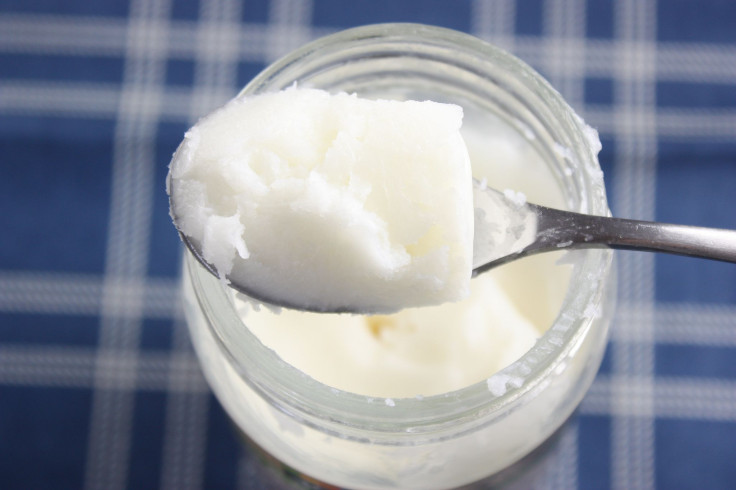Health Benefits Of Coconut Oil: It May Combat Deadly Bloodstream Infection, Researchers Find

It’s already been several years since coconut oil made the list for trendy new superfoods, joining forces with the likes of kale, quinoa, and avocado. Though coconut oil is high in fat, research has shown that it’s chock-full of health benefits, including lowered hypertension and cholesterol, as well as protection against Alzheimer’s and other forms of cognitive impairment.
Now, researchers believe they’ve found another health benefit of coconut oil: It may fight a deadly bloodstream infection caused by the Candida albicans fungus. The study, published in the American Society for Microbiology’s journal mSphere, examined coconut oil consumption in mice and how it impacted C. albicans infection.
“We found that diet can be an effective way to reduce the amount of Candida in the mouse,” said Carol Kumamoto, a professor of molecular biology and microbiology at Tufts University School of Medicine and an author of the study, in a press release. “The extension of this finding to the human population is something that needs to be addressed in the future.”
For the study, the researchers fed mice high-fat diets that consisted of coconut oil, beef tallow, and soybean oil. They fed another group a regular diet. The mice were on these diets for 14 days before they were injected with Candida, then continued to be on it for another 21 days. The researchers found that those who were on high-fat diets rich in coconut oil had much lower levels of Candida than those who were fed standard diets.
To shake things up a bit, the researchers even tried giving the standard-diet mice coconut oil, and after four days, their Candida levels were the same as those that had been on the high-fat diet the entire time. “When you compared a mouse on a high-fat diet that contained either beef fat or soy bean oil to mice eating coconut oil, there was about a ten-fold drop in colonization,” Kumamoto said in the press release.
C. albicans, or simply Candida, is one of the most common causes of bloodstream infections among hospital patients. Healthy humans and some animals have the fungus in their gut microbiome to some extent, but it's effect can spiral out of control in vulnerable individuals, entering the bloodstream and attacking the kidneys, liver, spleen, lungs, brain, and heart. People most likely to get infected with Candida are usually sickly, hospitalized patients.
“People who get this disease are very sick and generally in the hospital,” Kumamoto said. “We are talking about cancer patients, people who receive transplants, premature infants, intensive care unit patients with catheters, and sometimes the elderly.”
It’s not new that coconut oil can be used to treat or prevent Candida infection; several past studies have noted that especially with drug-resistant Candida strains appearing, coconut oil might be useful in treatment. But the latest research, which was done in mice, should be replicated in humans before being used in a clinical setting.
“There are two directions that we would like to take with this research now,” Kumamoto said. “One of them is finding out the mechanism of how this works. That is a big question we would like to answer. The second question is whether this can have any impact on humans.”
Source: Kumamoto C, et al. Coconut oil shows promise in the prevention of deadly bloodstream infection. mSphere. 2015.
Published by Medicaldaily.com



























